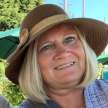Not All Strokes Are the Same
Daddy had a stroke

“Our bodies are our gardens — our wills are our gardeners.” — William Shakespeare
I do not know if I was less emotional because prior experiences taught me what to expect or because my body was numb. Either way I stood in the same setting, with many of the same characters, living an extremely different narrative. Time allowed only opportunities for raw emotions. Seven months after Kari’s stroke, my dad had a stroke.
Earlier in the day, I had arrived at his house planning to accompany him to a doctor’s appointment. He slept in the recliner but stirred at the disturbance in the room. The moment he opened his eyes, his caretaker and I acknowledged signs for concern: his words slurred, blood pressure high — 247/130 — really high, and his eyes appeared vacant.
The list of tasks on my calendar for the day evaporated as I accepted the fact that here, beside Dad, was where I needed to be. As he sat comatose in his tattered, faded recliner that cradled his body, we dialed 911.
Over the year, Dad’s body had aged and weakened causing each new infliction to demand more energy he didn’t possess. After ten minutes of waiting, tension increased. He became increasingly lucid but remained weak and unable to rise from the chair. His caretaker became agitated as it took longer than expected for the ambulance to arrive — but unfortunately teleportation machines are not working on our planet.
Watching the cars speed down the main road, time seemed to change seasons as images changed to shades of brown. I shivered at the chill in the room. When the sirens could finally be heard, I glanced out the window and saw the ambulance approaching. After turning onto the dirt, farm road they silenced the alarms and seemed to move even slower than before. Upon entering the house, their movements became swift and determined as they checked his blood pressure, pulse, and asked a multitude of questions.
When we arrived at the hospital, the staff followed the practiced maneuvers that to my eye appeared relaxed and unhurried. Nobody rushed from room to room. Nobody yelled, “Stat!” Their bodies moved in slow motion, nothing like what I had seen on Grey’s Anatomy — reminding me TV is fiction and this was real life.
Unclear about when the terminology changed, he became a stroke victim in ICU, hooked to tubes, wires, and monitors. As I sat beside Dad’s bed, praying that his loud snoring was a sign of something positive, I realized strokes are not all the same. The body and mind of a 33-year-old handles a stroke differently than that of a 84-year-old. Once it was confirmed that he had a brain bleed, they decided to transport him from Fruitland, ID to Boise. We discussed choices and made the necessary phone calls. They transported him by ambulance, and I drove the hour to Boise.
At the hospital, as I sat in the same setting with many of the same characters, I found myself living a story that was very different from Kari’s stroke.
Once situated in a bed, I joined dad and settled in for whatever would happen next. He snored loudly which seemed be a good sign. He looked so tired, weak and old. Whenever he woke for short intervals, short phrases reflected his confusion and desire to be at home, comfortable in his own bed.
Over the next few days, my body settled into a routine that was becoming all too natural. Life in the hospital felt like another day in paradise — sarcasm became a survival technique. Whenever he slept, I did what I always to combat stress and focus my brain I wrote.
Perspectives from Beside a Hospital Bed
I sit beside his hospital bed, alert
Watching Dad search for reality
Within truths that change
As quickly as the minutes tick.
He lies, not resting, hooked to wires
Sensors transmitting vital statistics
If you believe him,
On a bed made of chairs and a blanket.
Visitors are a welcomed audience
As he performs on a stage in his mind
“A nurse, six feet tall, gave me a bath”
He smiles and winks.
“Doc wants to install a pacemaker
But the battery only lasts 12 years.”
“You would be 97 by then,”
“I know — gotta get outta here.”
Searching, Dad finds the TV remote
Changes the channel from 9
Stares and hands the remote to me
“I want to watch channel 9.”
“I need to pee. Help me get up
Never mind, I’ll do it myself
How do I get out of this bed?
That nurse is a big lady, six feet tall.”
“If I could walk, I would go home
Need to wash and wax my truck.”
“Dad?”
“You don’t understand.”
Picking at his finger
He removes the tape
He awakens to say, “I’m going to sleep.”
A tall nurse, six feet tall,
Silences the beeping and re-tapes a sensor
Dad lies in a hospital bed on a mattress.
Sitting beside a loved one’s bed is sometimes all we can do to offer support. Holding their hand and telling them you love them is sometimes the best medicine.
Read more stories about Stroke Recovery
Asking for Help is Difficult, but It is Harder to Survive Alone
Uniting Science and Emotions to Promote Healing
About the Creator
Brenda Mahler
Travel
Writing Lessons
Memoirs
Poetry
Books AVAILABLE ON AMAZON.
* Lockers Speak: Voices from America's Youth
* Understanding the Power Not Yet shares Kari’s story following a stroke at 33.
* Live a Satisfying Life By Doing it Doggy Style explains how humans can life to the fullest.






Comments
There are no comments for this story
Be the first to respond and start the conversation.